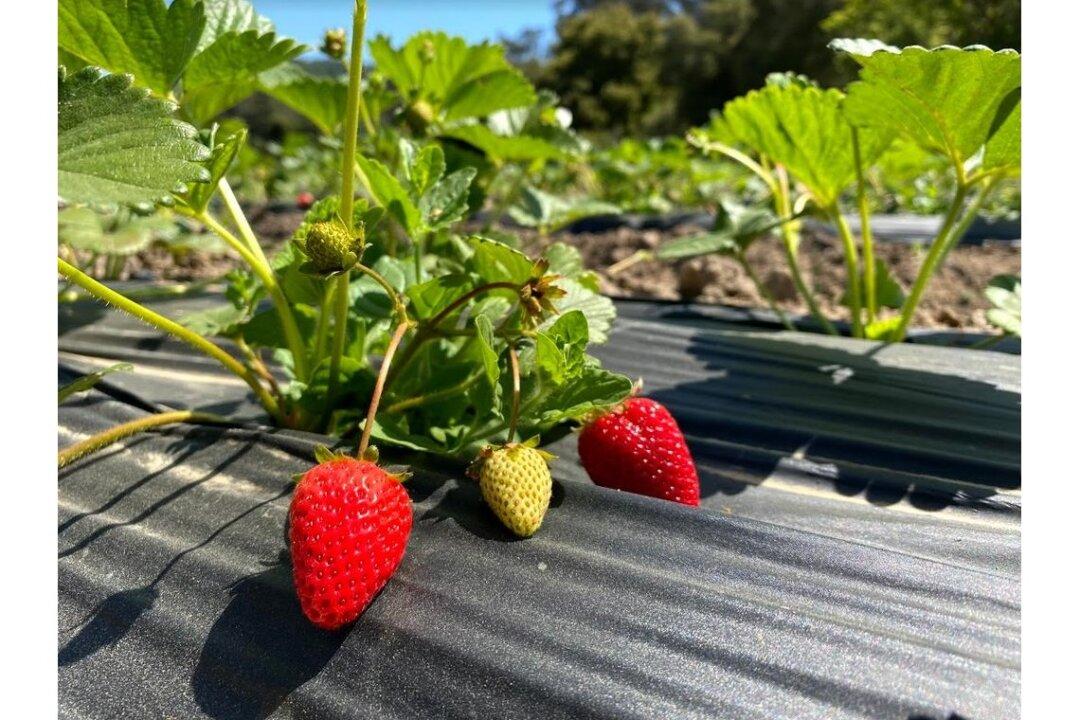GILROY, Calif.—Farmers in California anticipate producing more strawberries this year than last year’s crop.
The demand for healthy foods increased last year when the COVID-19 pandemic started, and has remained high. To keep up with the increased consumption, farmers responded by planting more strawberries last fall.





